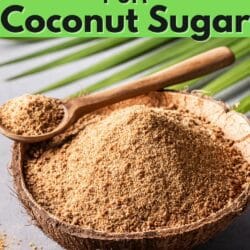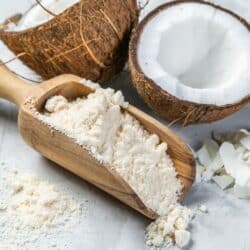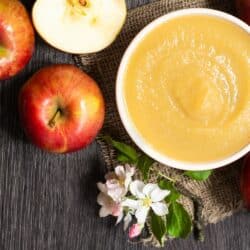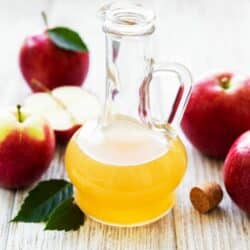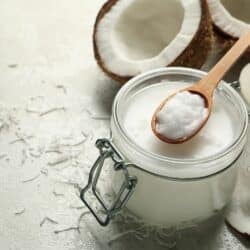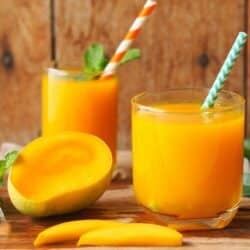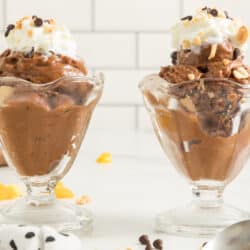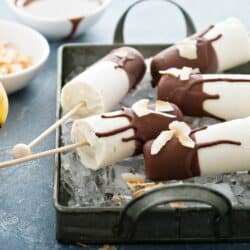8 Substitutes for Coconut Sugar in Baking
Coconut sugar is a lower-glycemic sweetener than regular sugar that comes from the sap of coconut palm tree flowers. It is a great sweetener for baking, but what happens if you don’t have it on hand? Learn several great substitutes for coconut sugar and how much you’ll need.
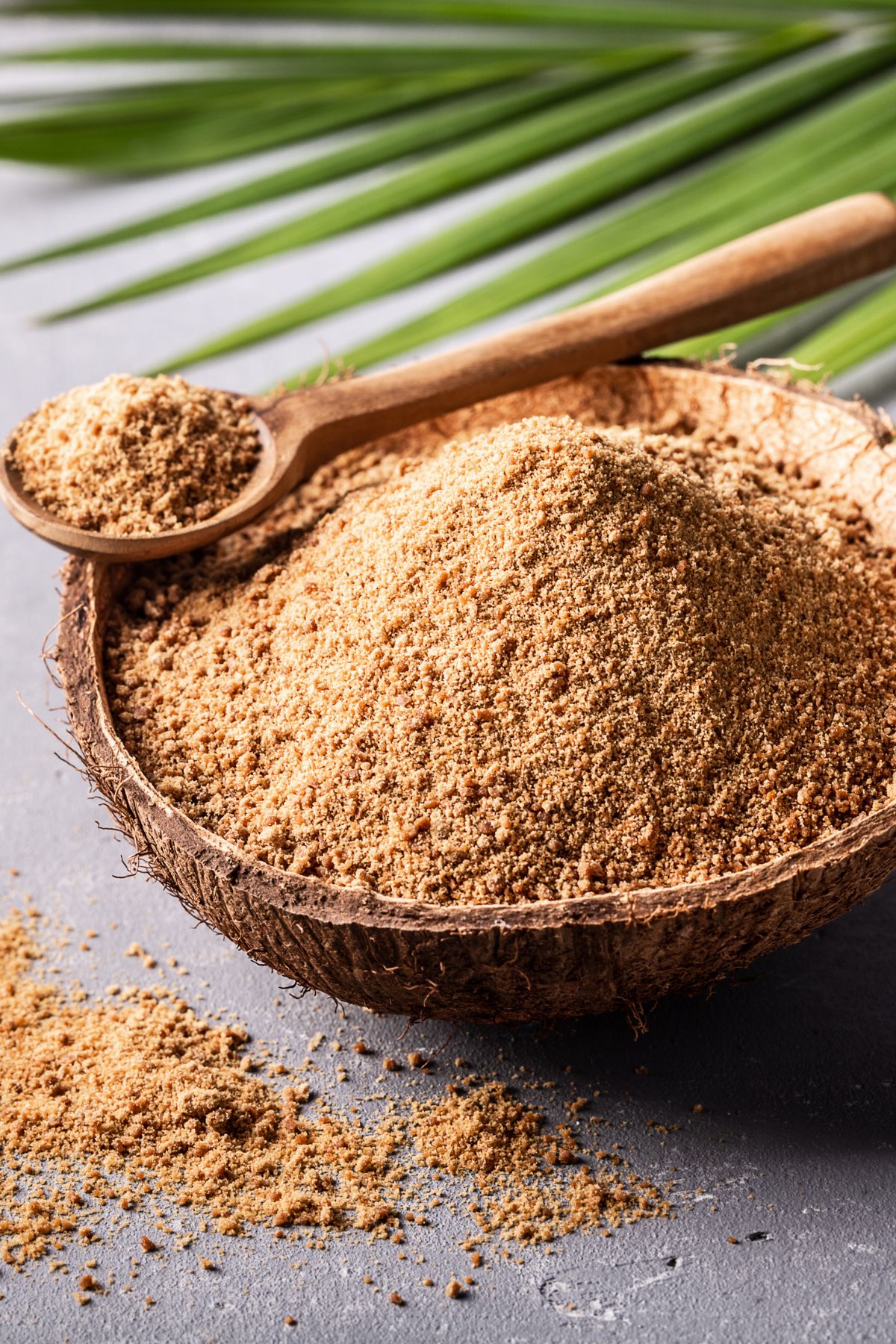
Substitutes for Coconut Sugar
1. Cane sugar
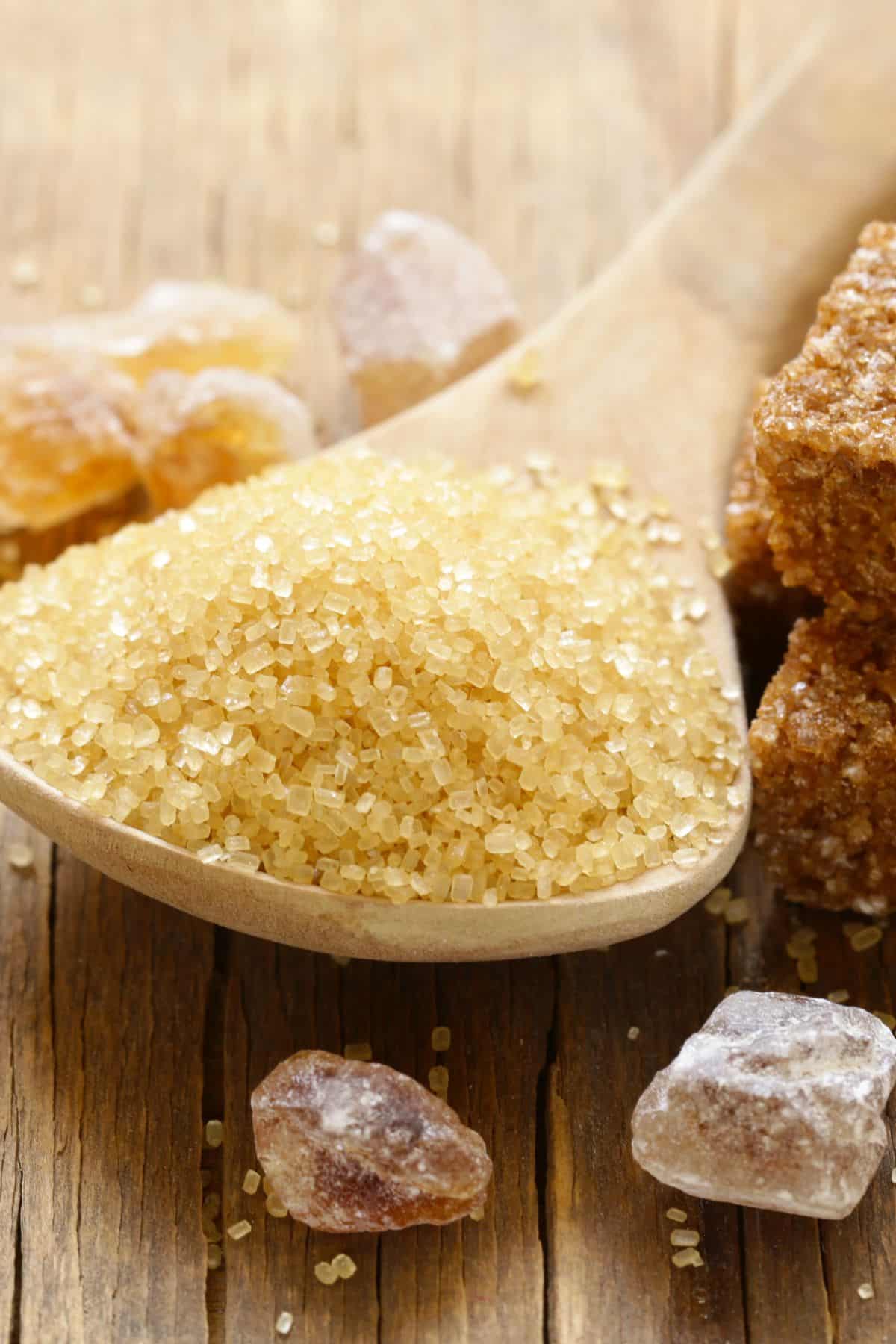
Cane sugar is a type of sugar that is made from the juice of sugar cane. It is also known as sucrose and is widely used in food and beverages.
The sugar cane plant is native to New Guinea and has been cultivated for centuries. The juice of the sugar cane plant is extracted and then boiled to remove the water content. This process leaves behind a thick syrup, which is then crystallized to form cane sugar.
It is also a popular choice for baking due to its sweetness and flavor. Cane sugar is an excellent substitute for coconut sugar without any change in flavor.
To substitute one cup of coconut sugar, use one cup of cane sugar.
2. Brown sugar
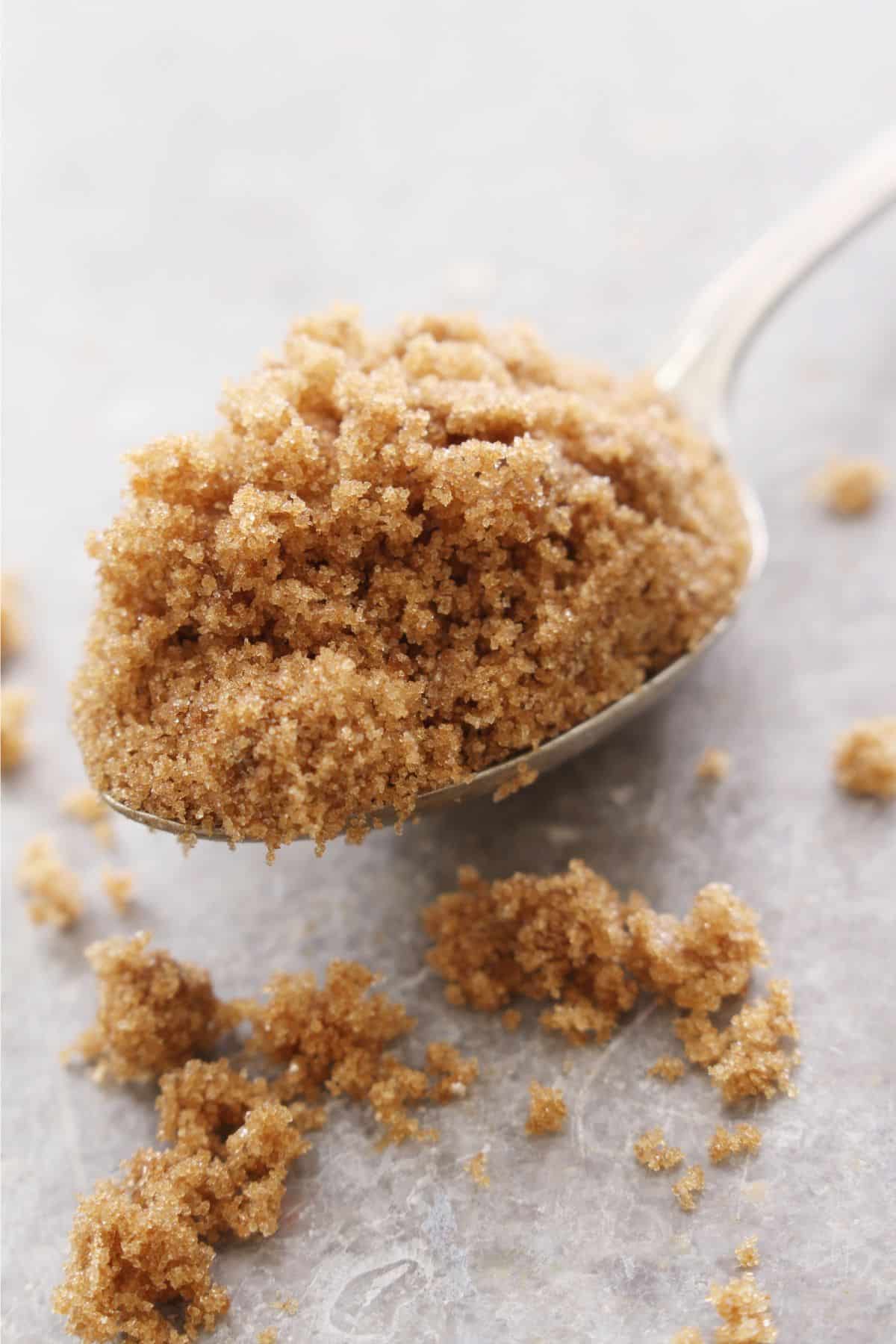
Brown sugar is a type of sugar that is brown in color and has a slightly molasses-like flavor. It is made by adding molasses to white sugar.
Brown sugar is often used in baking, as it adds a unique flavor to recipes. It can also be used as a topping for baked goods or as a sweetener in coffee or tea.
Brown sugar is an essential ingredient in many types of candy, including chocolate candy and caramel. In addition, it is often used as a glaze for ham and other meats. Brown sugar is a good alternative for coconut sugar, but it may impart a flavor of molasses.
To substitute one cup of coconut sugar, use one cup of brown sugar (you can use light brown sugar or dark brown sugar).
3. Maple sugar
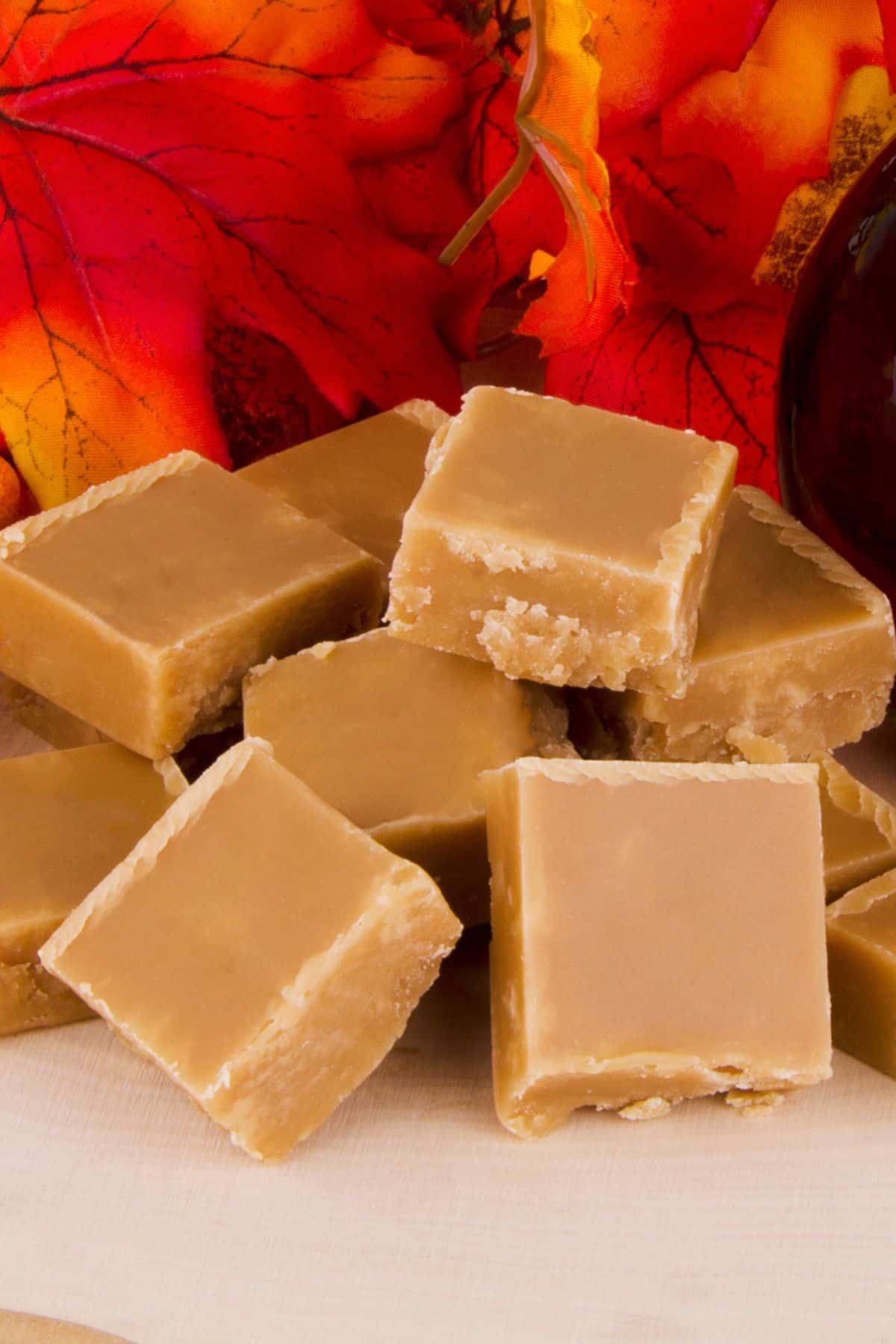
Maple sugar is an all-natural sweetener made from the sap of maple trees. It has a unique flavor that is perfect for baking and cooking. Depending on how it’s processed, maple sugar contains healthy vitamins and minerals.
The process of making pure maple sugar begins with tapping the sap from the tree. The sap is then boiled down to concentrate the sugars. Finally, the syrup is poured into molds and allowed to cool. Once it hardens, the maple sugar is ready to be used in any number of delicious recipes.
Maple sugar looks a lot like coconut sugar and is a great substitute without much alteration in flavor.
To substitute one cup of coconut sugar, use one cup of pure maple sugar.
4. Date sugar
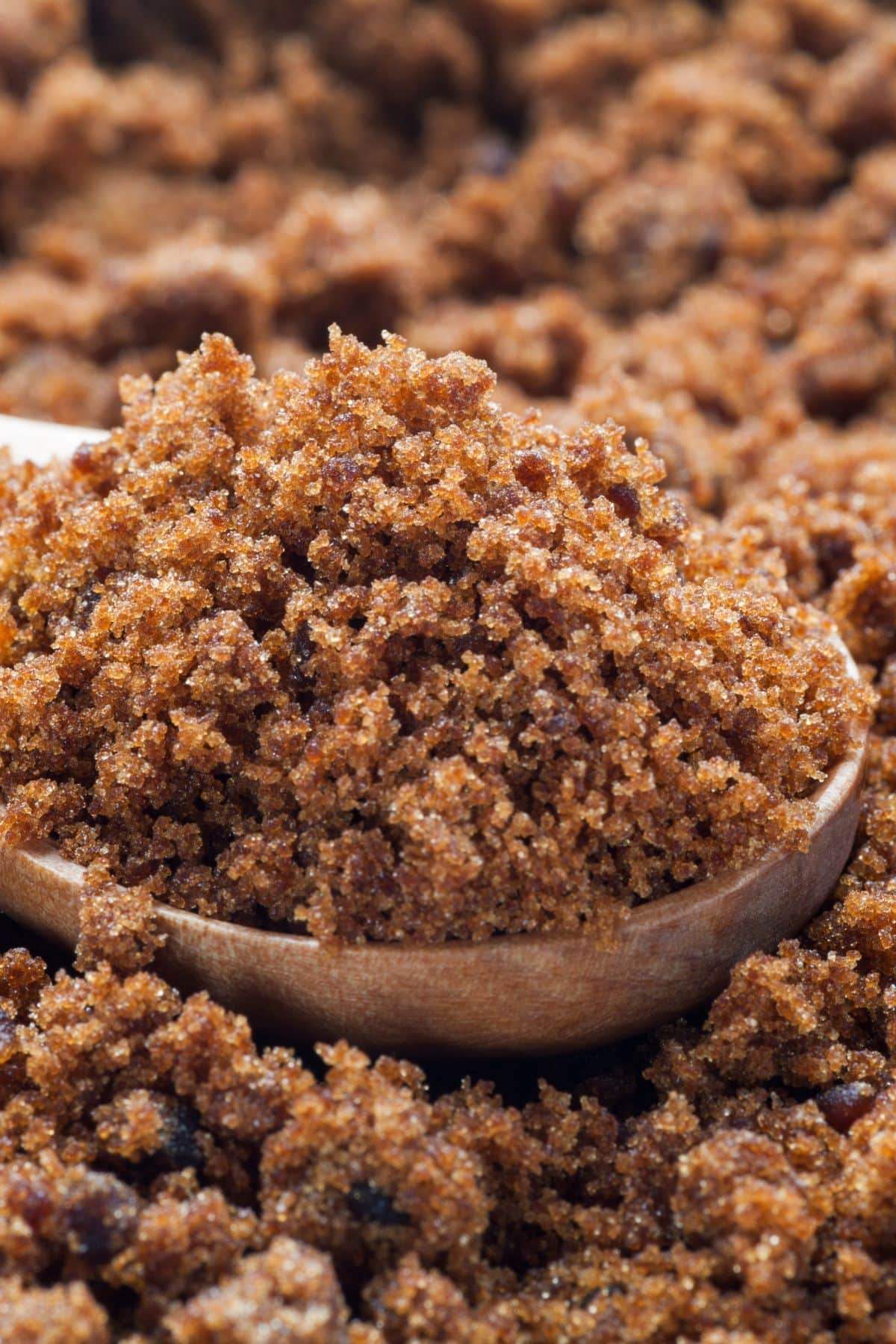
Date sugar is a type of sugar that is made from dried or dehydrated dates. It has a high sugar content and is often used as a sweetener in baking and cooking.
Date sugar is also a good source of dietary fiber and minerals, such as potassium and magnesium. It can be used as a topping for oatmeal or pancakes or mixed into yogurt or smoothies.
Because date sugar is more slowly absorbed by the body, it is thought to have a lower glycemic index than other types of sugar. It’s a good substitute for coconut sugar.
To substitute one cup of coconut sugar, use one cup of date sugar. I find that substituting date sugar for coconut sugar results in a slightly less sweet outcome.
5. Raw sugar (also called turbinado sugar)
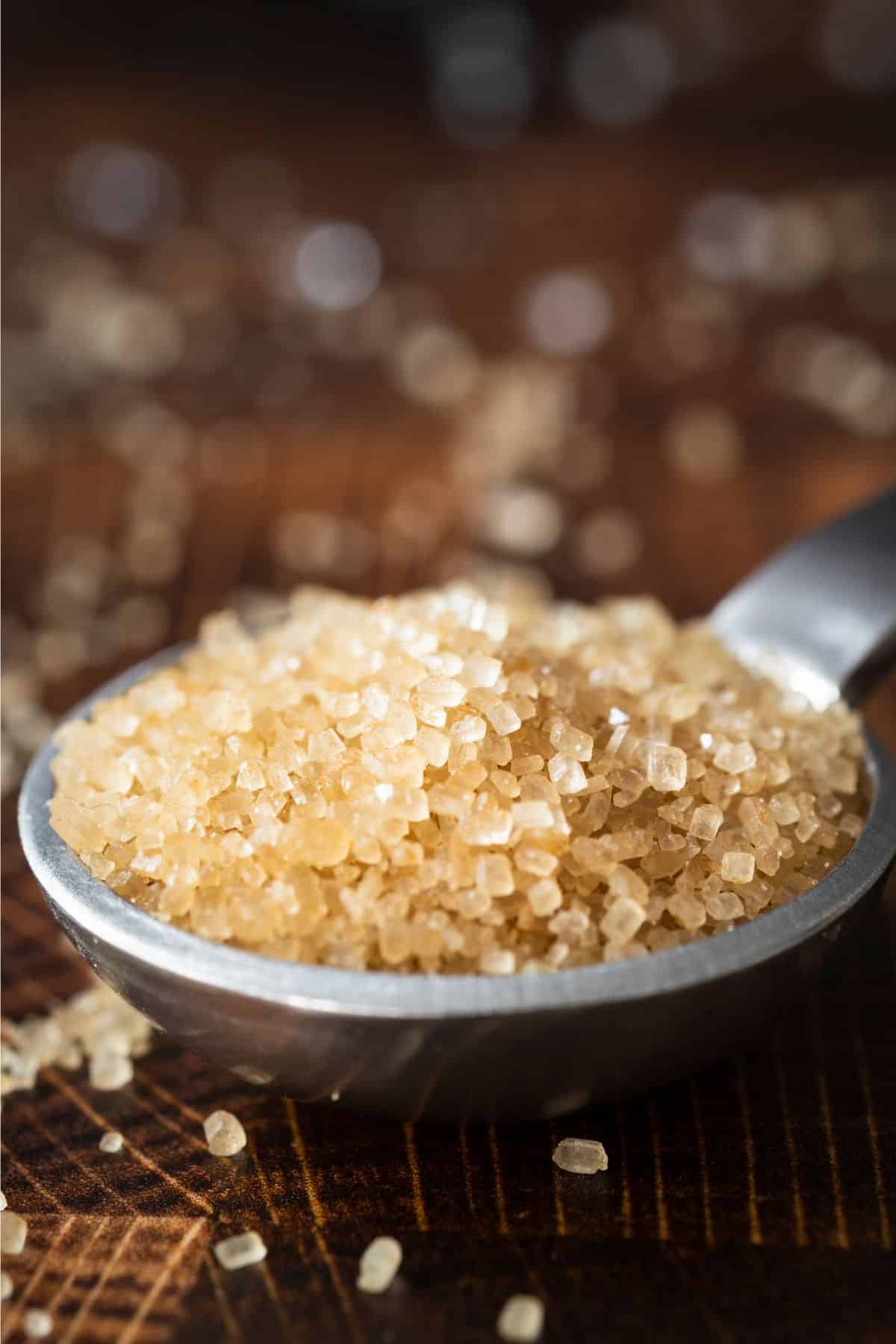
Raw sugar is less processed than white sugar, and as a result, it retains some of the molasses flavor. It is also larger in grain size, which gives it as lightly crunchy texture.
When baking with raw sugar, it is important to keep these characteristics in mind. For example, the larger grains may not dissolve as easily as white sugar, so it is important to give them ample time to dissolve.
Raw sugar can also add a deeper molasses flavor to baked goods, so be sure to use it judiciously if you want to avoid an overly sweet taste.
To substitute one cup of coconut sugar, use one cup of raw sugar.
6. Maple syrup
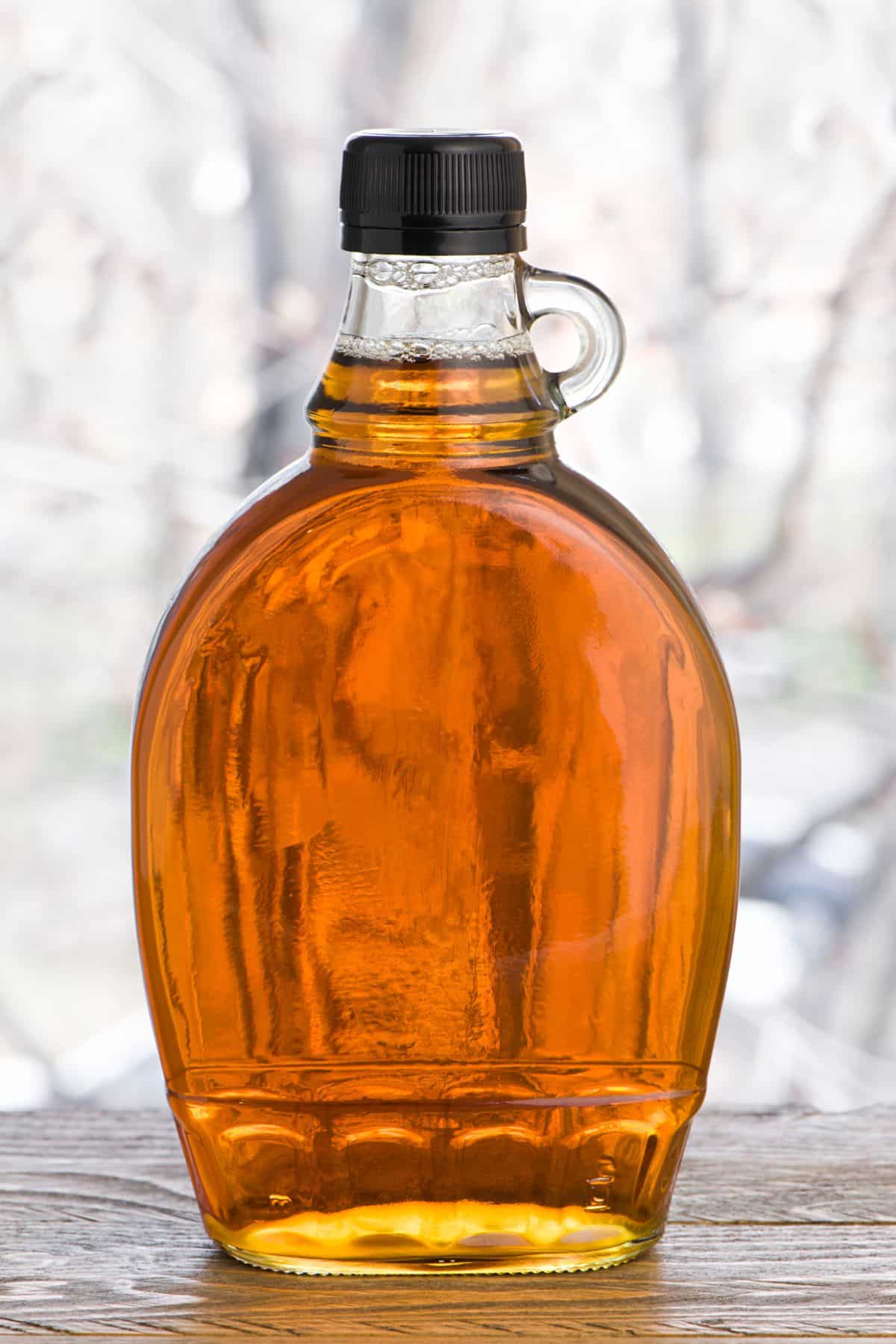
The sweet, amber-hued syrup we pour over pancakes and waffles comes from the sap of maple trees.
To harvest the sap, producers drill small holes into the tree trunk and insert spouts. The sap flows out of the holes and into buckets or tubing, which is then collected and transported to a sugar shack. There, the sap is boiled down to concentrate the sugars and remove water.
Maple syrup is graded according to color and flavor.
If you don’t have maple syrup on hand, you can also use agave syrup as one of the best coconut sugar substitutes.
To substitute one cup of coconut sugar, use 3/4 cup of maple syrup. You may need to make some further adjustments to your recipe considering that coconut sugar is a dry sweetener and maple syrup is a liquid sweetener.
7. Honey

Honey is made by bees from the nectar of flowers, and it is stored in their hive as a food source. Honey is often used as a sweetener in foods and beverages, but it can also be eaten on its own.
Thanks to its unique flavor and versatility, raw honey can be used in any number of ways. Also, since honey is a liquid, you may want to reduce other liquids in the recipe.
To substitute one cup of coconut sugar, use 1/4 cup of honey. You may need to make some further adjustments to your recipe considering that coconut sugar is a dry sweetener and honey is a liquid sweetener.
8. Monk fruit, erythritol or stevia

Monk fruit sweetener, erythritol and stevia are all-natural sweeteners that meet these criteria. A small melon grown mostly in southern China; Monk fruit extract is about 200 times sweeter than sugar but does not raise blood sugar levels.
Erythritol is a naturally occurring sugar alcohol that is found in fruits and vegetables and it’s about 70% as sweet as sugar.
Stevia is a plant, and the leaves are about 300 times sweeter than sugar but have a slightly bitter aftertaste.
All three of these natural sweeteners are good alternatives to artificial sweeteners and can be used in baking. See my related article on the best natural sugar substitutes.
With monk fruit and stevia, I recommend tasting it first, starting with less and adjusting to taste.
To substitute one cup of coconut sugar, use 1/4 cup of monk fruit.
To substitute one cup of coconut sugar, use one cup of erythritol.
To substitute one cup of coconut sugar, use 1/4 cup of stevia.
You can find all of these at your local health food store (and at most grocery stores).
Pros and Cons
Here’s a detailed chart summarizing various substitutes for coconut sugar along with how they compare in terms of pros and cons:
| Substitute | Pros | Cons | Measurement to Replace 1 Cup of Coconut Sugar |
|---|---|---|---|
| Cane Sugar | Widely available, excellent in baking. | Higher glycemic index, less nutrient-dense. | 1 cup |
| Brown Sugar | Adds moisture and a molasses-like flavor to dishes. | Similar to cane sugar in glycemic impact. | 1 cup |
| Maple Sugar | Natural, contains minerals, unique flavor. | Costly and may be harder to find than other sugars. | 1 cup |
| Date Sugar | Nutrient-rich, lower glycemic index. | Doesn’t dissolve fully, might alter texture in smooth recipes. | 1 cup |
| Raw Sugar (Turbinado) | Less processed, retains some natural molasses flavor. | Larger grains may not dissolve as easily, affecting texture. | 1 cup |
| Maple Syrup | Natural and rich in flavor. | Liquid form requires recipe adjustments for dry/wet ingredient ratios. | 3/4 cup |
| Honey | Contains antioxidants, versatile in use. | Much sweeter, may require other recipe adjustments for liquid content. | 3/4 cup |
| Monk Fruit | Extremely sweet, no impact on blood sugar. | May need taste adjustment due to intense sweetness. | 1/4 cup |
| Erythritol | Sugar alcohol with no calories, doesn’t raise blood sugar. | Can have a cooling aftertaste, not as sweet as sugar. | 1 cup |
| Stevia | Plant-based, zero-calorie, does not raise blood sugar. | Can have a bitter aftertaste, highly potent so requires careful measuring. | 1/4 cup |
What it tastes like
Coconut sugar has a unique flavor that is often compared to brown sugar. However, it is not as sweet as dark brown sugar and has a slightly nutty taste.
Nutrition info
It is sometimes touted as a potentially healthier alternative to other sugars as it contains more antioxidants, vitamins and minerals.
It is important to note that coconut sugar is still a form of added sugar and should be consumed in moderation. See my related article on natural versus added sugars.
How it’s used
Coconut sugar is used when you want a less sweet flavor and a hint of caramelization.
When used in moderation, coconut sugar can be a delicious and healthful way to sweeten your favorite recipes. I use it often in my baking recipes.
You can find it in the baking aisle of your local grocery store or online.
FAQs
Yes, coconut sugar is considered natural and unprocessed. However, it will still raise blood sugar levels similar to raw cane sugar.
The best coconut sugar alternative is probably regular white sugar. It has a similar taste and will bake the same way.
Yes, but it’s difficult to substitute a liquid sweetener for a dry sweetener, especially when following a baking recipe. It’s best to try and use a granulated alternative instead.
Don’t Miss These Helpful Guides on Substituting Ingredients
Conclusions
There are many substitutes for coconut sugar that can be used in baking and cooking. Some of these substitutes, such as date sugar and raw sugar, retain some of the molasses flavor. Others, such as honey and maple syrup, are natural sweeteners with their own unique flavor. And finally, there are calorie-free substitutes, such as monk fruit, erythritol and stevia, that can be used in baking and cooking.
No matter what your preference is, there is sure to be a substitute for coconut sugar that will suit your needs.
Don’t forget to join my newsletter list to get exclusive clean eating recipes and tips. The newsletter is 100% free with no spam; unsubscribe anytime.
About the Author: Carrie Forrest has a master’s degree in public health with a specialty in nutrition and is a certified holistic nutritionist. She is a top wellness and food blogger with over 5 million annual visitors to her site. Carrie has an incredible story of recovery from chronic illness and is passionate about helping other women transform their health. Send her a message through her contact form.


